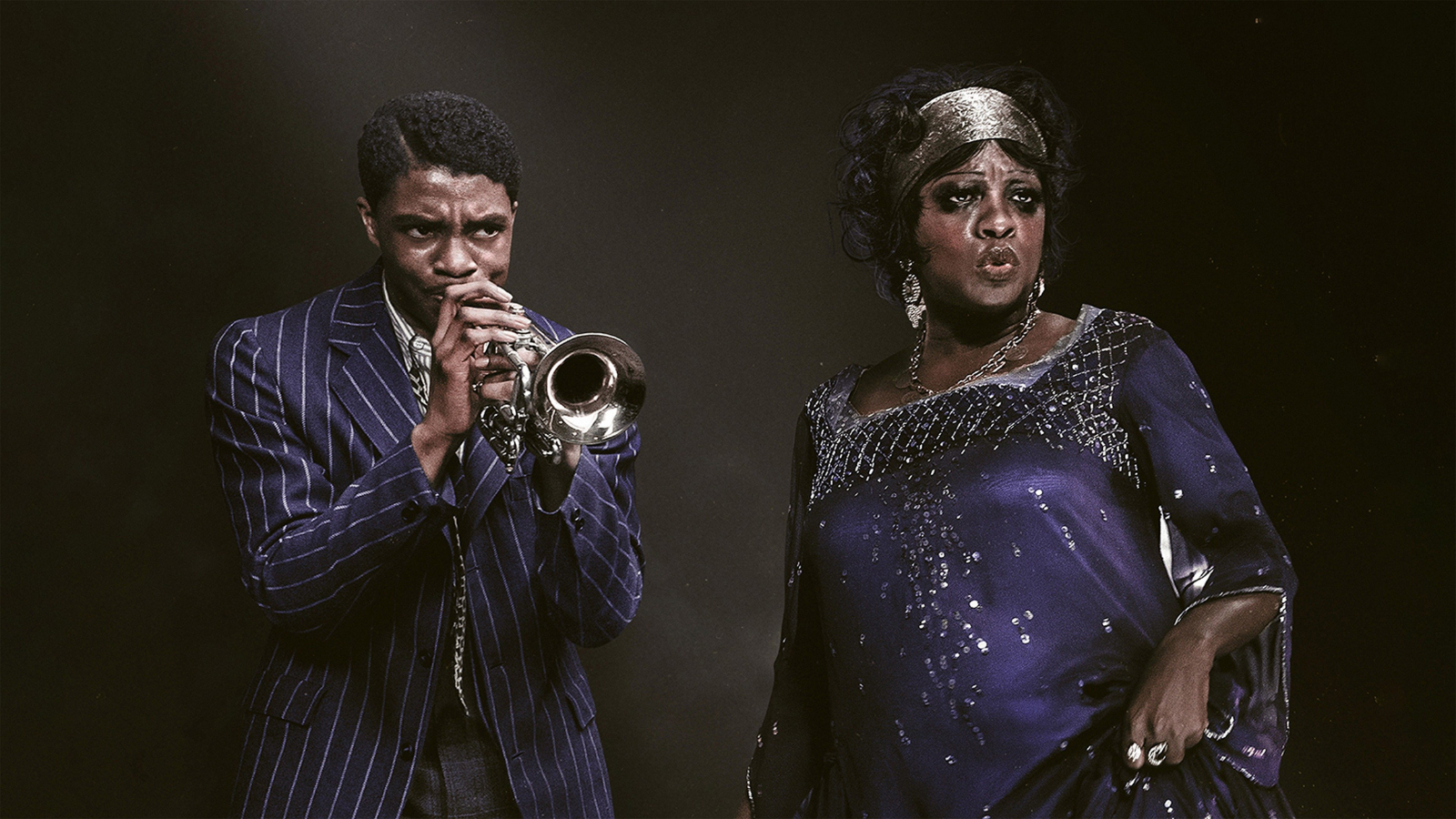Film Review: 'Ma Rainey's Black Bottom'
Music films that really get music are harder to find than one might think. From musician biopics to visual albums, the convergence of film and music in recent years has resulted in some incredible groundbreaking media. Ma Rainey's Black Bottom, the latest film from George C. Wolfe, gets music. From the riveting performances of each actor to the rich screenplay, the film understands the technicality of music, specifically, the blues. Ma Rainey's Black Bottom explores blues as a companion for Black folk in a world that is staunchly against them. The film explores the blues as the center of shifting musical tastes in the midst of the exploitation of Black art and labor by white music executives. Most importantly, Ma Rainey's Black Bottom explores blues as a life force and music as the driving force behind the most intense and carnal emotions known to humanity. The film accomplishes all this with the help of two seismic performances from a pair of the greatest, and most important, Black actors of our time: Academy Award winner Viola Davis and the late Chadwick Boseman.
An adaptation of the August Wilson play of the same name, Ma Rainey's Black Bottom focuses on a single recording session and surveys the tensions between Ma and the studio execs, different generations of musicians, different generations of Black men, and more. Over the course of an hour and a half, the film never wavers in its intentionality. What could easily turn into a preachy film on racial tensions is instead a careful and nuanced exploration of the real-life Ma Rainey and the power struggles that exist for Black folk at every turn. Davis makes a dazzling turn as the fiery Ma Rainey. Dubbed the "Mother of Blues," Ma Rainey is one of the most seminal musicians of all time. Davis expertly showcases Ma's determination, vulnerability, and insecurity in every breath-taking scene. She invests grit and spunk in every musical performance (whether she's singing or lip-syncing) and monologue. Her strongest moments come when she plays against Colman Domingo who is currently turning out Emmy-worthy performances on HBO's Euphoria. When Davis gets the chance to sink her teeth into Ruben Santiago-Hudson's wordy, yet still powerful, screenplay and deliver chilling lines about the inhumane exploitation of Black art in the music industry, she may as well make space on her mantle for her second Oscar. Outside of a few awkward lip-syncing moments, the primary issue with Ma’s character lies in the haphazard handling of her queer identity which, in turn, negatively impacts Viola’s performance. In this way, Ma Rainey finds one of its main issues. While Santiago-Hudson's screenplay strikes all the expected emotional chords, the film could have benefited from a bit of deviation from Wilson's original play and more risk-taking in general.
Davis gives a stunning performance, but her work stands even taller when contextualized with Boseman's portrayal of Levee Green, a trumpeter in Ma's band. Boseman, who starred in the thrilling Da 5 Bloods earlier this year, delivers the best performance of his career in Ma Rainey's Black Bottom. He throws his whole being, body and soul, into this character. Levee is a man at the center of a number of crossroads in the film: he is the youngest member of the band, the only one ambitious enough to pursue a music career of his own, and he has a raging heart and a hot head. Boseman handles Levee's complexities with ease. Words simply can't do justice to the pure magic of Boseman's performance. We should consider ourselves blessed to be able to have this last gift from Chadwick.
Netflix
It wouldn't be a music film without the music. Ma Rainey's Black Bottom features a soulful score from Branford Marsalis and riveting vocal performances from Davis herself and Maxayn Lewis. Although the film moves at a fairly brisk pace, there is ample time dedicated to Ma's music. Featuring "Those Dogs Of Mine," "Ma Rainey's Black Bottom," and "Hear Me Talking To You," the film excels at delivering an effective tribute to Ma and her legacy while also breathing new life into her storied discography. Wolfe uses music as a character instead of an add-on in this film because that's exactly what is. Music shifts and transforms throughout every element of the film. From the bustling horns and yells of the car crash in the beginning of the film to the sing-songy speech pattern of Boseman's Levee, music is the main character of Ma Rainey's Black Bottom. This is a film that doesn't indulge in preaching a message or being a glitzy musical. Instead, Ma Rainey's Black Bottom simply dedicates pure time and energy to telling the best adaptation of Wilson's play that the cast and crew were capable of. Throughout their study of Ma's legacy, with the foundation of Wilson's cast of characters, the actors find a way to make the story just as pertinent and enrapturing as it is on the stage. From artists fighting for ownership of their master recordings to protests and riots against the state-sanctioned murder of Black folk at the hands of the police state, the themes of Black Bottom are omnipresent in 2020, just as they were a century ago. This film is a winner. It's a balanced and heartfelt rumination on Black culture and Black art with soul coursing through every frame.
Score: 80

